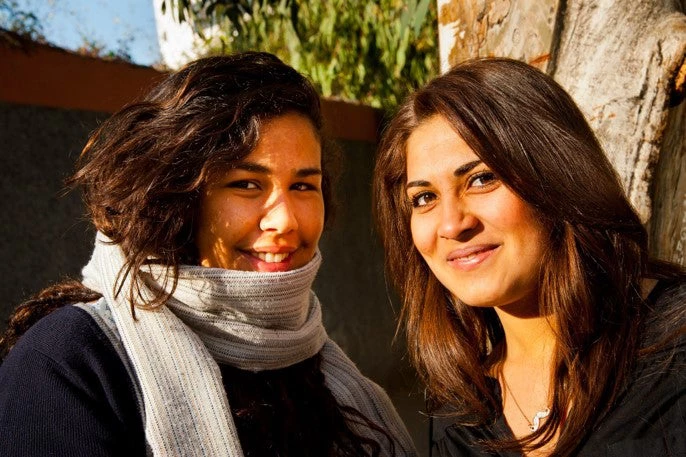Gender equality and digital development are inextricably linked. Yet globally, men are 21 percent more likely to be online than women , a figure that rises to 52 percent in low-income countries. The Web Foundation estimates that barriers that keep women and girls offline — high device and data costs, lower digital skills, and restrictive social norms, to name a few — have cost developing countries about $1 trillion over the last decade.
The Digital Development Global Practice recently launched a new approach to accelerate its work on gender equality, with an ambitious vision that centers women and girls across its financing and analytics. The approach orients solutions to the five foundational pillars of the digital economy: digital infrastructure, digital public platforms, digital financial services, digital businesses, and digital skills. It also emphasizes the need for more and better sex-disaggregated data and to tackle risks, such as algorithmic bias and online gender-based violence.
Digital Infrastructure
Within infrastructure, practical solutions that increase access, affordability, and usage are critical. Intentional design that locates public Internet access points in safe spaces (for example, libraries and community centers) is a good start. Other interventions that support the closing of adoption gaps improve the affordability of devices and data plans and tailor digital skills programs for women. Traditionally underutilized universal service and access funds can help. However, only four out of 69 countries have deployed these funds to close the gender digital divide. Device affordability schemes also show promise. The recently approved Uganda Digital Acceleration Project will test some of these innovations.
Digital Public Platforms
Access to digital public platforms often requires digital identification, which women lack compared to men. Barriers that women face often include legal requirements to present additional documents, for example, a marriage certificate. High registration costs and inconveniently located registration points also deter women. The Nigeria Digital Identification for Development Project conducted a qualitative study designed to understand the needs of women and marginalized groups, which surfaced several solutions. These include working through trusted networks and women’s groups to share information; locating registration centers close to communities; and designing registration policies that prioritize vulnerable groups. Other options include women-only registration centers, mobile registration services, and female enrollment agents.
Digital Financial Services
Digital payments, whether to provide wages, social assistance, or agricultural transfers, can save women time and provide added privacy, security, and control , thereby contributing to women’s empowerment. This is a key focus on the G2Px initiative, launched in early 2020 in partnership with the Bill and Melinda Gates Foundation.
In Benin, where an estimated 19 percent of women make or receive digital payments compared to 38 percent of men, another World Bank initiative aims to provide women smallholders with a safe and private place to store their money and connect them with other financial services. Complementary training on digital financial literacy for recipients and promoting a network of women agents can also help, as social norms often limit women’s ability to interact with male agents.
Digital Businesses
Women entrepreneurs often face a range of barriers, including unequal access to financing, legal discrimination, differences in skills, less access to networks, and more care responsibilities. They are also poorly represented in technology startups. To address these constraints, the Digital Cabo Verde Project aims to support women entrepreneurs with business and entrepreneurial mindset training, access to business networks, peer support, and mentoring.
Beyond comprehensive support for women-led businesses, tackling investor bias is critical. Research suggests that the persistent gender gap in financing cannot easily be explained by differences in education, experience, sector, intellectual property, or geography.
Digital Skills
Building digital skills starts early with hands-on exposure to technology to build girls’ interest and confidence. Typically, complementing technical skills training with soft skills, engaging role models, and creating structured linkages to the labor market through internships, apprenticeships, and job placement programs have positive outcomes. The Kosovo Digital Economy Project, which trains rural women in programming and web design to become online freelancers, shows how digital skills training can create pathways to economic prosperity. Women with disabilities, older women, and illiterate adults may require tailored curricula and flexible programs with active outreach to develop their basic digital skills — another key area for engagement.
Cutting across these pillars is the need to address restrictive gender norms that prevent women from fully participating in the digital economy. Solutions to tackle these vary with context but addressing gender stereotypes and engaging men and boys are essential steps in shifting beliefs and behaviors.
Ensuring that women and girls have equal access to and use of digital technologies — mobile phones, computers, and the internet — is central to their economic and social empowerment and inclusive economic recovery. As we accelerate our efforts on the digital inclusion of women and girls, we call on our partners to join us in this ambitious agenda.
Related:
Digital Development Note on Gender Equality
Digital Development at the World Bank
Digital Development Partnership
We would like to thank our external partners Sonia Jorge, Executive Director, Alliance for Affordable Internet and Head of Digital Inclusion Program at the Web Foundation and Claire Sibthorpe, Head of Connected Women and Connected Society, GSMA, who provided thoughtful feedback and insights on our approach to achieving gender equality in digital development.





Join the Conversation